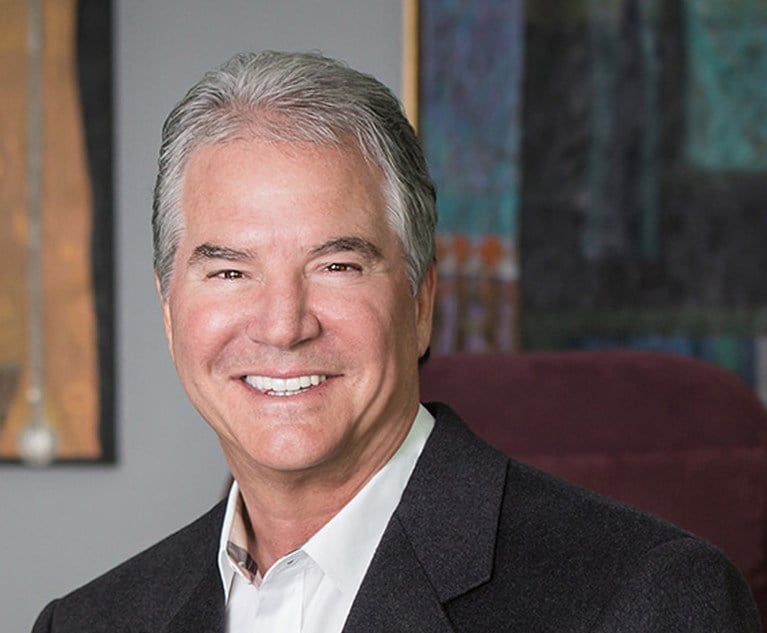Law School Deans Lobby California Court for Diploma Privilege in Virus Era
The deans said the justices gave no indication of which exam option they may favor. State Bar officials, however, appeared early in the meeting to be leaning in favor of an online exam in October, they said.
July 02, 2020 at 06:47 PM
4 minute read
 Justice Mariano-Florentino Cuéllar of the California Supreme Court. Credit: Jason Doiy / ALM
Justice Mariano-Florentino Cuéllar of the California Supreme Court. Credit: Jason Doiy / ALM
California's law school deans on Thursday pleaded with state Supreme Court justices and state bar leaders to skip the fall bar exam and grant diploma privilege to candidates for the 2020 test.
Deans from University of California, Berkeley, UC Hastings, UC Irvine, UCLA and other law schools gathered on a private Zoom meeting with Justices Goodwin Liu, Mariano-Florentino Cuéllar and Joshua Groban, as well as state bar executives, to discuss prospects for a fall exam. The UC deans said they argued that current proposals for an in-person September exam or an online October test appear unfeasible during the COVID-19 pandemic.
"The current unprecedented times demand unprecedented and courageous solutions," the four UC deans wrote to alumni after the nearly two-hour meeting. "COVID-19 has created a climate involving multiple crises, including physical health, mental health, and financial health. Multiplying the anxiety and despair of these crises, the nation is confronting and must find solutions to the systemic racism and deep inequalities endemic in our society. At this unparalleled moment in history, even using the traditional bar exam as a point of departure feels like an affront."
The deans said the justices gave no indication of which exam option they may favor. State Bar officials, however, appeared early in the meeting to be leaning in favor of an online exam in October, they said.
While an online test would avoid the physical distancing problems created by regional, in-person administrations of the test, an October exam has several drawbacks.
First, while the National Committee of Bar Examiners will offer a "limited" multistate bar exam Oct. 5 and 6, that test won't be scalable with California's exam, meaning the two portions of the test will not sync for purposes of generating a valid score, UC Hastings Dean David Faigman said Thursday. Faigman said bar officials assured attendees that their testing expert could develop a method for calibrating the scoring of the test sections.
Secondly, with thousands of applicants expected to take the fall exam, scores from an October sitting would probably not be released until mid-January, Those who fail the fall exam would in all likelihood not have enough time to register or prepare for the February test.
Finally, questions remain about the feasibility of administering a test online.
In their message to graduates, the law school deans said the experience of the 280 applicants who took last month's first-year bar examination, also known as the baby bar, was "indeterminate." Faigman said bar officials did not offer much information about administration of the test, although he noted that one test-taker experienced technical problems and was placed on hold during a help-center call.
The three justices who attended Thursday's meeting said they would keep an open mind on testing options. Liu did note he could not agree to adopting an alternative licensing plan that didn't apply equally to all law school graduates, Faigman and UC Berkeley Law School Dean Erwin Chemerinsky said.
 Goodwin Liu. Photo by Diego M. Radzinschi/ ALM
Goodwin Liu. Photo by Diego M. Radzinschi/ ALMDeans of American Bar Association-approved schools, whose students typically pass the bar at much higher rates than their colleagues from state-accredited institutions, want diploma privilege to apply only to their graduates.
The Supreme Court would have to approve the parameters of an emergency diploma privilege, including who would be eligible to receive it and whether they would have to practice under the supervision of an active lawyer or be subject to additional continuing education requirements.
States around the country continue to grapple with how, or whether, to administer a fall bar exam as COVID-19 infection numbers spike. The Texas Board of Law Examiners recommended Thursday that the state's Supreme Court cancel July and September in-person bar exams and set an online test for October. Tennessee and Florida both canceled their July bar exams over the last two days.
The California Supreme Court has scheduled an online public comment period July 7 to hear from students planning to take the bar exam this fall.
This content has been archived. It is available through our partners, LexisNexis® and Bloomberg Law.
To view this content, please continue to their sites.
Not a Lexis Subscriber?
Subscribe Now
Not a Bloomberg Law Subscriber?
Subscribe Now
NOT FOR REPRINT
© 2025 ALM Global, LLC, All Rights Reserved. Request academic re-use from www.copyright.com. All other uses, submit a request to [email protected]. For more information visit Asset & Logo Licensing.
You Might Like
View All
Assessing the Second Trump Presidency’s Impact on College Sports


LSAT Administrator Sues to Block AI Tutor From Using ‘Famous, Distinctive’ Test Prep Materials
3 minute readTrending Stories
Who Got The Work
J. Brugh Lower of Gibbons has entered an appearance for industrial equipment supplier Devco Corporation in a pending trademark infringement lawsuit. The suit, accusing the defendant of selling knock-off Graco products, was filed Dec. 18 in New Jersey District Court by Rivkin Radler on behalf of Graco Inc. and Graco Minnesota. The case, assigned to U.S. District Judge Zahid N. Quraishi, is 3:24-cv-11294, Graco Inc. et al v. Devco Corporation.
Who Got The Work
Rebecca Maller-Stein and Kent A. Yalowitz of Arnold & Porter Kaye Scholer have entered their appearances for Hanaco Venture Capital and its executives, Lior Prosor and David Frankel, in a pending securities lawsuit. The action, filed on Dec. 24 in New York Southern District Court by Zell, Aron & Co. on behalf of Goldeneye Advisors, accuses the defendants of negligently and fraudulently managing the plaintiff's $1 million investment. The case, assigned to U.S. District Judge Vernon S. Broderick, is 1:24-cv-09918, Goldeneye Advisors, LLC v. Hanaco Venture Capital, Ltd. et al.
Who Got The Work
Attorneys from A&O Shearman has stepped in as defense counsel for Toronto-Dominion Bank and other defendants in a pending securities class action. The suit, filed Dec. 11 in New York Southern District Court by Bleichmar Fonti & Auld, accuses the defendants of concealing the bank's 'pervasive' deficiencies in regards to its compliance with the Bank Secrecy Act and the quality of its anti-money laundering controls. The case, assigned to U.S. District Judge Arun Subramanian, is 1:24-cv-09445, Gonzalez v. The Toronto-Dominion Bank et al.
Who Got The Work
Crown Castle International, a Pennsylvania company providing shared communications infrastructure, has turned to Luke D. Wolf of Gordon Rees Scully Mansukhani to fend off a pending breach-of-contract lawsuit. The court action, filed Nov. 25 in Michigan Eastern District Court by Hooper Hathaway PC on behalf of The Town Residences LLC, accuses Crown Castle of failing to transfer approximately $30,000 in utility payments from T-Mobile in breach of a roof-top lease and assignment agreement. The case, assigned to U.S. District Judge Susan K. Declercq, is 2:24-cv-13131, The Town Residences LLC v. T-Mobile US, Inc. et al.
Who Got The Work
Wilfred P. Coronato and Daniel M. Schwartz of McCarter & English have stepped in as defense counsel to Electrolux Home Products Inc. in a pending product liability lawsuit. The court action, filed Nov. 26 in New York Eastern District Court by Poulos Lopiccolo PC and Nagel Rice LLP on behalf of David Stern, alleges that the defendant's refrigerators’ drawers and shelving repeatedly break and fall apart within months after purchase. The case, assigned to U.S. District Judge Joan M. Azrack, is 2:24-cv-08204, Stern v. Electrolux Home Products, Inc.
Featured Firms
Law Offices of Gary Martin Hays & Associates, P.C.
(470) 294-1674
Law Offices of Mark E. Salomone
(857) 444-6468
Smith & Hassler
(713) 739-1250







